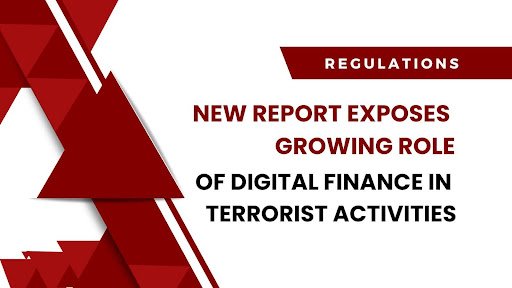The Bank for International Settlements (BIS) has taken an initiative that aims to provide advanced artificial intelligence(AI) tools to financial institutions to address the growing complexities of the regulatory ecosystem.
This announcement is a part of the BIS Innovation Hub’s working program 2025-2026.
It highlights the commitment and steadfastness of technology for financial enhancement. It provides supervision to green financial initiatives.
Project AISE (Artificial Intelligence Supervisor Enhancer) and Project Gaia are two flagships under this program. These programs underline the BIS’s focus on modernizing regulatory complexities and frameworks in addressing climate risks.
Project AISE is commanded by the BIS Innovation Hub’s Toronto center. The main focus is to develop an AI-driven toolkit. The purpose of the toolkit is to provide revolution to financial supervision.
The financial ecosystem is increasingly complex. The rapid growth of Fintech and supervisory agencies poses challenges in managing the evolving regulations more frequently.
The adaptation of these changes is essential to ensure the regulatory oversight. The AISE project addresses these challenges by providing the capabilities of AI-powered tools for automating tasks.
These AI-driven tools enhance the research processes and On-site inspections and streamline operational efficiency. These tools are designed to process large amounts of data.
They detect the emerging risks and respond swiftly with regulatory changes. These tools possess decision-making capabilities.
The aspect of Project AISE that differs from others is that the focus of Project AISE is on the transfer of knowledge. The new practices are being transferred from expert supervisors into AI toolkits.
The new projects ensure that the supervisors can adapt to these experiences more quickly. This approach not only provides ease in the continuity of regulatory insights adherence but also evolves supervisory teams.
The Head of the BIS Innovation Hub, Cecilia Skingsley, said these initiatives represent the “art of possibility,” building on gained skills and experience in the past five years to help the central bank about the use of technology for financial and economic stability.
Finalizing the project, AISE is Project Gaia. It builds on the earlier proof-of-concept with a focus on climate-related risk analysis. The project aims to extend the green finance applications to other use cases.
It highlights the comment of BIS to address the environmental challenges with the help of innovative solutions. The use of AI in complex climate data, Project Gaia, supports the central bank in integrating and sustaining the considerations of operations.
The broader work program for 2025-2026 from the BIS Innovation Hub represents a full-blown approach since its establishment in 2019. The seven centers are operating worldwide.
The number of active portfolios is 26, along with 31 complicated projects. The hub is now a focal point for central bank experts for technical advancements.
The program features “horizon scanning” to highlight the emerging trends in financial technology. It also addresses the gaps in the innovation of the central bank.
Furthermore, it seeks collaboration with Central Banks to find the synergies between existing projects to develop and support responsibilities. These responsibilities include policy formation, payment structures, and financial stability.
Agora is one of the notable ongoing projects. It involves collaborating with seven central banks and more than 40 private sector financial institutions. This initiative explains how tokenization can improve the wholesale process of cross-border payments.
It is one of the largest projects of geographical scope. It involves participant involvement and highlights the possibilities for a central bank-driven ecosystem through technical advancements.
BIS focuses on AI governance to expand individual projects. A report from the Consultative Group on Risk Management underlines the frameworks for managing risks with AI adoption in central banking.
The report provided the actions. These actions include the establishment of interdisciplinary AI committees, defining the rules and principles to use AI with responsibility, maintaining AI inventory tools, and performing regular monitoring.
These recommendations ensure that the Central bank can utilize the transformative powers of AI for risk mitigation.
Dr. Elena Rodriguez, a fintech researcher at the London School of Economics Dr. Elena Rodriguez said, “AI can enhance the speed and accuracy of the regulatory process, but it’s not a silver bullet.”
The developments and implications are beyond the central banks to commercial financial firms. Supervisors scrutinize banks’ AI governance frameworks, so adherence to these principles is crucial for maintaining trust and the utilization of AI tools.
Institutions prioritizing transparency and accountability handle the complexities of AI adoption and customer services.
The BIS’s initiatives came when global financial systems were undergoing technological advancements. Instituting projects including AISE and Gaia, the BIS Innovation Hub not only equips regulators but also addresses the challenges.
As the projects progress, the success depends on the collaboration among central banks and private sector partners with other stakeholders. BIS emphasizes that the project will evolve.
They will also ask for feedback from regulators and other financial institutions to refine their AI tools. Future phases of the project include the use of AI in different areas, including climate risk assessment, where machine learning can help the model about the financial impacts of environmental changes.
It will also provide the supervision of decentralized finance (DeFi) platforms that present regulatory changes due to a lack of centralized controls.
People Also Search:
SFS Clears Path For VATPs To Introduce Secure Staking For Clients
TD Bank To Pay Hefty 3$ Billion Fine In Major Anti-Money-Laundering Enforcement Action
US Cities Ideological Bias Concerns in AI Regulations at Paris Summit













+ There are no comments
Add yours